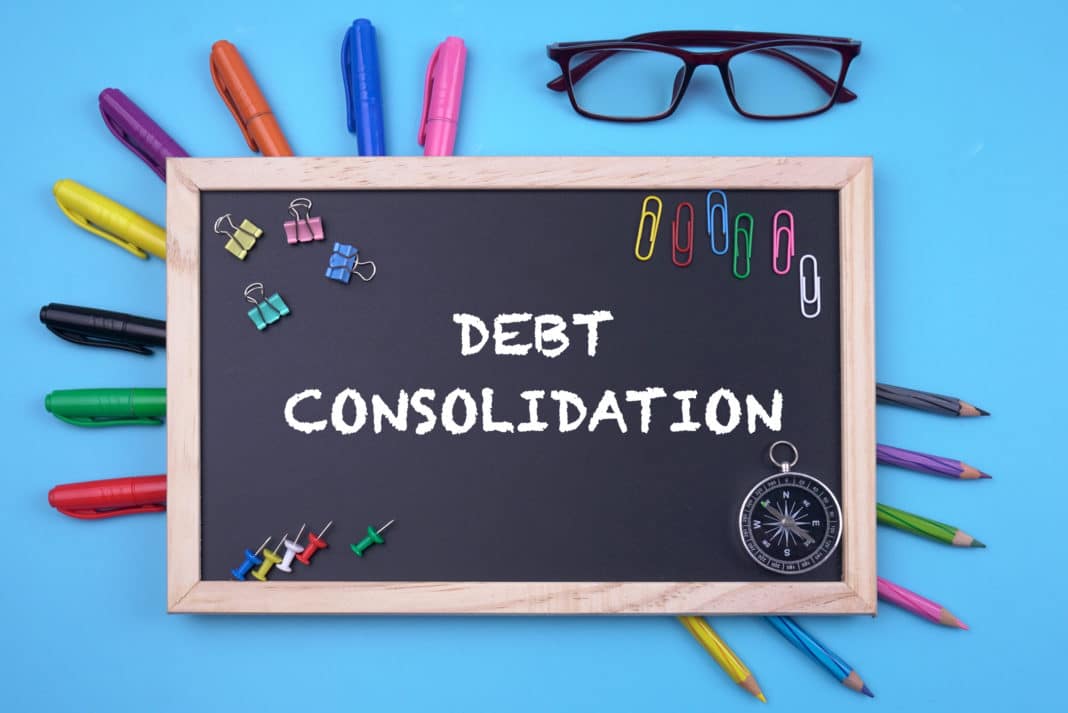Best Debt Consolidation Loans of 2020(3)

What Is the Smartest Way to Consolidate Debt?
Debt consolidation loans are a good option for many people with debt, but they aren’t the only option. Debt consolidation comes in many forms, says Gerri Detweiler, education director of business credit website Nav.
Alternatives such as home equity loans and credit card balance transfers might be more attractive if you can’t qualify for the best personal loan with good repayment terms. If you qualify for debt consolidation loans with bad credit, Detweiler explains, they are probably going to be higher-cost loans, and consolidation might not make sense.
Here’s more about choices for consolidating debt:
Home equity loans. They generally have better interest rates than unsecured personal loans because using your home as collateral makes these loans less risky for lenders. And you can get lower monthly payments, as loan repayment term lengths can be 10 years or longer.
But home equity loans can be risky for consumers as well. You could lose your home to foreclosure if you can’t make your payments, and if you face bankruptcy, discharging a home equity loan compared with unsecured debt is much harder.
Balance transfer credit cards. A balance transfer card with a 0% introductory APR allows you to transfer credit card debt to the card and make interest-free payments on the new credit card balance for up to 21 months. You’ll also pay a fee of 3% to 5% of the balance you transfer.
By comparison, personal loans for debt consolidation could offer term lengths as long as 60 months, though you’ll have to pay interest.
Detweiler says 0% APR credit card offers can be a good choice, along with consolidating some debts. Sometimes it’s best to start by consolidating the highest-rate debt, she advises, and take care of the remaining debts after you pay that off, either with monthly payments or another debt consolidation loan.
Learn more about 0% APR balance transfer credit cards with the U.S. News Best 0% APR Credit Cards Guide.
Debt relief services. Certified nonprofit credit counselors can help you strategize how to pay off your debt and negotiate with creditors to lower your interest rates and fees. A counselor may recommend a debt management plan to pay your creditors. The plan may require fees, such as a setup fee and a monthly fee.
Debt settlement. Usually, for-profit debt settlement companies negotiate with creditors to settle your debt. But don’t expect to wipe out your debt for pennies on the dollar.
Debt settlement companies charge high fees and penalties and even higher interest rates. And you can damage your credit history if you stop paying your bills.
Consider debt settlement companies as alternatives to bankruptcy because the damaging effects to your credit report can be long lasting.
Bankruptcy. This is an option if you can’t pay your debts. It can be useful for out-of-control debt, but it comes with many consequences. Bankruptcy will hurt your credit and may remain on your credit report for up to 10 years.
You will lose all of your credit cards, some or all of your luxury possessions – such as designer clothes or multiple vehicles – and any property that is not exempt from sale.
Declaring bankruptcy is a last resort. But if you have serious debt and are being sued by creditors or have a pending foreclosure or repossession, bankruptcy can be a lifeline.
What Should You Do Before You Apply for a Debt Consolidation Loan?
Getting a debt consolidation loan is a financial decision not to be taken lightly. Before you apply, do a little homework to avoid missteps and find the best deal.
These four moves can help:
1. Consider alternatives. You may pay less in interest with debt consolidation loan alternatives, such as a credit card balance transfer.
2. Establish a repayment plan and budget. Planning how you will make the new loan payments is essential, especially if you’ve struggled to keep up in the past. You can:
3. Shop around for the best quote. Compare options from a few debt consolidation loan companies to ensure that you’re getting the best debt consolidation loan rates and repayment terms you can afford. Most lenders offer rate quotes, which trigger soft credit inquiries that will not harm your credit score.
l Assess your total debt by tallying up your credit card balances, student loans, car loans and other accounts.
l Track your spending to see where your money goes each month, identifying areas to cut back.
l Compare your debts with your expenses to determine how much to allot to paying down debt each month and to create a budget.
Once you know how much you can put toward your debt, make sure your loan terms work with your budget.
4. Avoid scams. Red flags include aggressive sales representatives, “guaranteed” approvals and quick-fix promises, as well as requirements such as upfront payments before loan approval.
“No lender should charge you upfront before you get the loan ... and you certainly shouldn’t send money with a wire transfer or prepaid card,” Detweiler cautions.
5. Make a plan to avoid new debt. A debt consolidation loan can wipe the slate clean and allow you to start fresh with no credit card balances or other credit commitments. Although it may be tempting, avoid using your newly cleared accounts to shop or manage household expenses unless you can easily pay off the balances each month. You don’t want to create new debt to manage on top of your debt consolidation loan.



